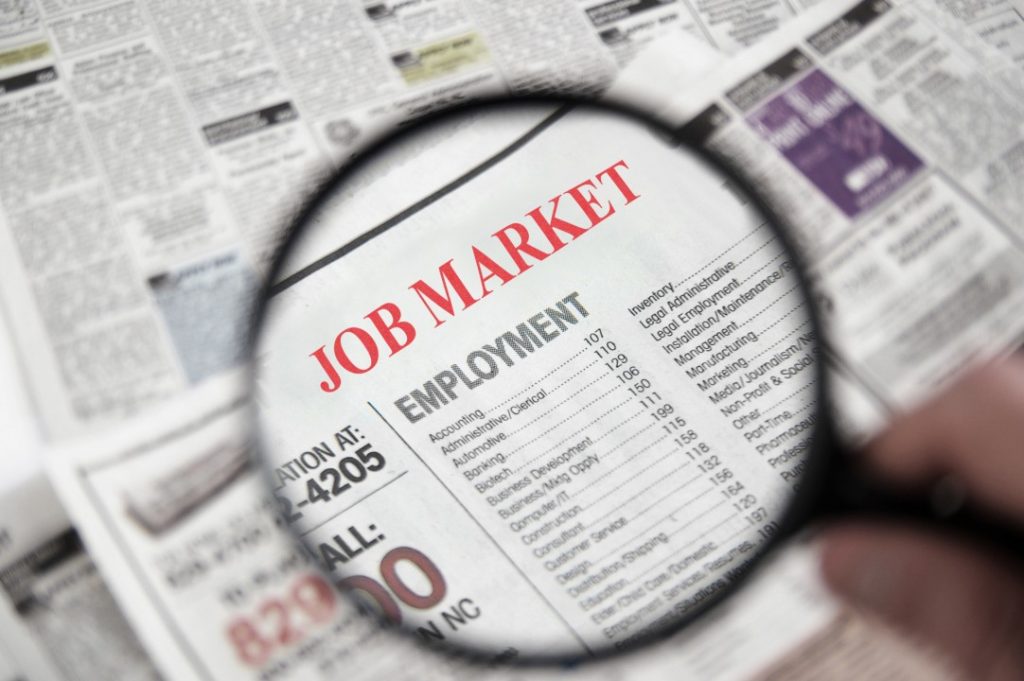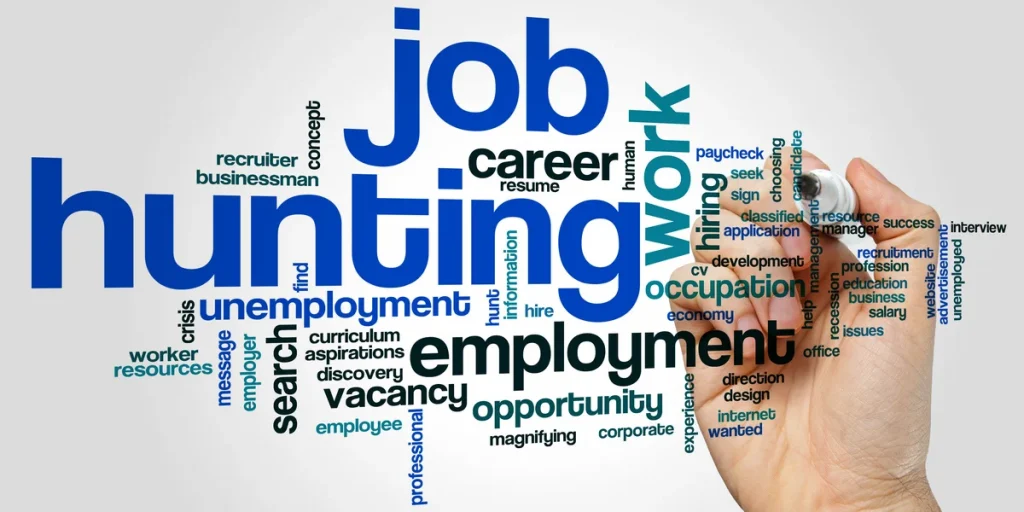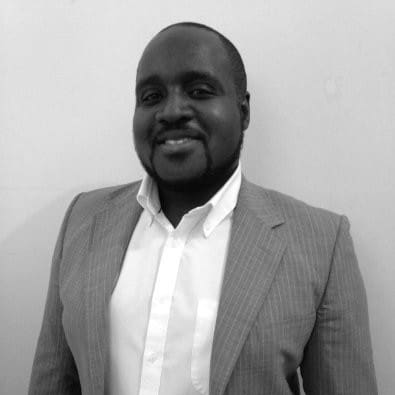
he United States is a land of opportunity for individuals from all walks of life. As a European graduate, securing a job in the USA can be an enriching and transformative experience. However, navigating the job market, visa requirements, and cultural differences can feel overwhelming. To better understand which positions are most sought after, check out our guide on the Top In-Demand U.S. Jobs for European Graduates. This comprehensive resource will help you understand the process, prepare effectively, and position yourself for success in the competitive U.S. job market.
Understanding the U.S. Job Market

The United States has one of the largest and most dynamic labor markets in the world, offering positions across countless industries. European graduates, particularly those with specialized skills or advanced degrees, can find numerous opportunities. Sectors such as technology, healthcare, engineering, and finance consistently exhibit high demand for skilled workers.
For example, the tech industry in cities like San Francisco and Austin is booming, providing openings for software developers, data analysts, and AI specialists. Meanwhile, healthcare systems across the U.S. are always in need of professionals in biomedical sciences, public health, and management. For European graduates, these sectors offer not only jobs but also significant career growth prospects.
Many U.S. employers value the unique perspectives brought by international candidates. European graduates often possess diverse educational backgrounds, strong multilingual capabilities, and cross-cultural insights that make them valuable assets to globalized companies. Cities like New York, Los Angeles, and Chicago are hubs for multinational corporations, startups, and NGOs actively seeking such talent.
Additionally, European graduates who specialize in niche fields—such as sustainable development or biotechnology—can often find employers eager to tap into their expertise. This demand underscores the importance of showcasing your unique skills and experiences during the job application process.
Preparing for the U.S. Job Hunt

Tailoring Your Resume and Cover Letter
The American resume format prioritizes brevity and accomplishments. Unlike the European CV, which may detail education and career history extensively, a U.S. resume typically spans no more than two pages and highlights your most relevant achievements.
For example, instead of merely listing your responsibilities at a previous job, emphasize outcomes such as “Increased team productivity by 20%” or “Led a project that generated €500,000 in revenue.” Include specific metrics to demonstrate your impact.
A tailored cover letter is equally important. Each letter should address the specific job and company, explaining how your skills align with the role and how you can contribute to the organization’s goals. Avoid generic templates; instead, personalize your application for better results.

When tailoring your resume and cover letter, consider the employer’s perspective. Think about what problems the company is trying to solve and how your unique skills and experiences can directly contribute to that. Highlighting this in your documents makes it clear that you’ve done your research and are not only a good fit for the role, but also proactive in understanding the company’s needs. This approach can set you apart from other candidates and increase your chances of standing out to recruiters.
Researching Employers and Industries
Before diving into applications, take time to understand the U.S. job market dynamics. Identify industries that match your qualifications and research companies that are known for hiring international talent. Platforms like LinkedIn, Glassdoor, and industry-specific job boards provide valuable insights into company cultures, employee reviews, and salary expectations.
Additionally, consider reaching out to professionals in your field for guidance. Many European graduates have successfully transitioned to the U.S. market and can share insights about the hiring process and industry trends.
Networking
In the U.S., networking is often considered as important as submitting formal applications. Many positions are filled through referrals or personal connections. Attend industry events, conferences, and meetups to connect with potential employers and mentors.
Utilize LinkedIn to build your professional network, focusing on individuals who work at companies of interest. Sending personalized messages to request informational interviews can lead to valuable advice and even job leads. Alumni networks, professional associations, and expatriate groups can also help you establish connections in your chosen industry.
Navigating Visa and Work Authorization Requirements

H-1B Visa for Skilled Workers
The H-1B visa is the primary work visa for international professionals. It allows U.S. employers to hire skilled foreign workers in specialized occupations such as IT, engineering, or healthcare. The application process requires an employer to sponsor your visa, and there is a strict annual cap on the number of visas issued.
For European graduates, it’s essential to target companies experienced in visa sponsorship, such as major tech firms, financial institutions, and academic organizations. Start the application process early to meet deadlines and improve your chances of securing sponsorship.
Optional Practical Training (OPT) and STEM OPT
If you recently completed a degree in the U.S., you may qualify for OPT, which allows you to work for up to 12 months after graduation. STEM graduates can extend this period by an additional two years under STEM OPT, giving you more time to build experience and find long-term opportunities.
OPT is particularly useful for European graduates who wish to gain practical experience in the U.S. before transitioning to a full-time role requiring visa sponsorship.
J-1 Visa for Exchange Visitors
For short-term roles such as internships or fellowships, the J-1 visa is a viable option. This visa is often sponsored by educational or cultural exchange programs and includes a clear end date. European graduates seeking temporary experience in the U.S. can use this route to enhance their resumes while building professional networks.
Green Card Considerations
While obtaining a Green Card (permanent residency) is a long-term goal, some employers may assist with this process, especially for roles in high-demand industries. Demonstrating your commitment to staying in the U.S. and adding value to the organization can make employers more willing to sponsor your application.
Cultural Differences and Workplace Etiquette

Adapting to U.S. Workplace Culture
Workplace norms in the U.S. emphasize initiative, teamwork, and direct communication. As a European graduate, you may notice differences in how feedback is delivered, meetings are conducted, and relationships are built. Be proactive in adapting to these norms by observing colleagues and seeking clarification when needed.
Understanding Work-Life Balance
In contrast to some European countries, the U.S. often has a more demanding work culture, with longer hours and fewer vacation days. However, attitudes are shifting, with many companies offering remote work, flexible schedules, and wellness programs to support employees. Learning to balance productivity with self-care is crucial for long-term success.
Popular Industries for European Graduates
- Technology: Roles in software engineering, AI development, and cybersecurity are plentiful in hubs like Silicon Valley and Austin.
- Finance: Opportunities in investment banking, risk management, and consulting are abundant in cities like New York and Boston.
- Healthcare: European graduates in fields such as biomedical engineering and public health can find roles in hospitals, research institutions, and government agencies.
- Creative Industries: Careers in media, design, and marketing thrive in Los Angeles and New York, where European talent is often valued for its fresh perspective.
Challenges and How to Overcome Them
- Visa Sponsorship Hurdles. Many employers shy away from sponsoring visas due to cost and complexity. Focus on companies with a proven track record of hiring international graduates. Leverage your unique skills to make a strong case for why you are worth the investment.
- Cultural Adjustment. Moving to a new country can be isolating at first. Joining local expatriate groups, participating in cultural exchange activities, and engaging with colleagues can help you build a support network.
- Time Zone Differences. If applying from Europe, ensure availability for interviews and networking events during U.S. business hours. Being flexible and proactive will demonstrate your commitment to the role.
Conclusion
As a European graduate, the opportunity to work in the United States can open doors to unparalleled personal and professional growth. By understanding the job market, navigating visa requirements, and adapting to cultural differences, you can set yourself apart and achieve your career goals.
Remember, while the process may seem challenging, it is also immensely rewarding. With determination, preparation, and a clear strategy, you can successfully transition to a fulfilling career in the U.S. and make a lasting impact in your chosen field.



